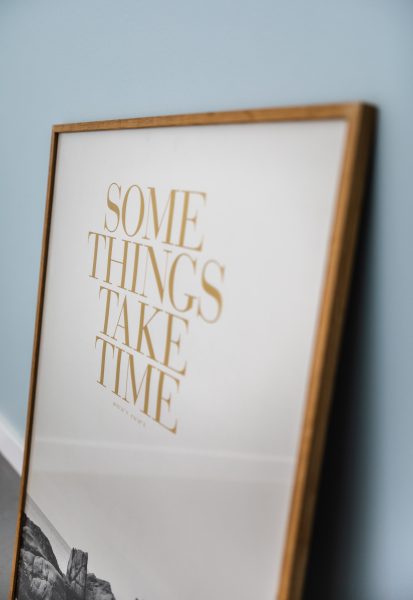Apply Patience To Interviews
From Career Tips, 2017 Volume 8, August 2017
Most candidates come into interviews with a certain amount of unease:
- Is this the right job?
- Am I the right candidate?
- How can I demonstrate that and get the job offer?

This anxiety often manifests in a fear to take one's time in answering questions, and over-emphasis on providing the 'best' answers: "The interviewer asked me a question, and I need to come up with an answer. If I don't answer quickly, it will look bad."
This is a dangerous psychology.
As I like to say, once you believe you have the 'best' answer to a question, it generally ceases to even be a good answer. That's because you now hesitate to change even a word of that answer, always trying to have it come out the 'best' way. Then it will no longer sound natural, and will come across rehearsed and much less believable.
Instead, you want to be thinking about questions like:
- Why is the interviewer asking this particular question?
- Which of my stories might be a better fit to what it is the interviewer would want to hear about?
- How can I use my answer to elicit more information about the job / the interviewer's motivations / the deep underlying challenges they face?
You can't be doing very much of that if you are also trying to give instant answers.
In fact, if you do keep giving quick responses to every question, at some point that in itself will start to sound rehearsed. It can appear you are so practiced at your answers that I no longer am sure I am getting a sense of the 'real' you. It can also sound like you have an 'agenda'.
There's nothing wrong with pausing to think about your answer a few seconds. That signals that you are taking the question seriously, and trying to give a meaningful answer. It's also a great way to recover when you've drawn a momentary blank.
The key is in how you handle the pause.
If your reaction is to stare at me for 10 seconds like a deer caught in the headlights, that's definitely going to kill any rapport we might have built up. Or if you stall for several seconds after every single question I ask, that's also going to wear on me. But if you sometimes say, "That's a good question" as you take a few beats to think, I'll be fine with that. I may even give you some bonus points for taking the question seriously.
The other huge benefit to applying patience in interviews is that it gives you a chance to reflect long enough to realize that perhaps that story you were about to tell isn't the most relevant example. Or that you are making an assumption about my question that perhaps isn't the right one, and it might be time to ask a clarifying question. Or that perhaps you just misinterpreted what I said.
Now you might say, "What about when I'm talking with a fast-charging leader?"
As my good friend Marty Latman likes to say, "It depends." Obviously if you are speaking to a high energy, Type A personality, you will want to give answers crisply and relatively quickly to better match their style. But even there, the occasional, thoughtful, "Let me think about that a moment" pause can be quite effective.
So try applying patience to your next interview, as well as to networking meetings, client meetings, and other types of influential conversations. Let me know what happens.
Check out the next in this series: Apply Patience to Networking.
And for a related issue, check out Clear Out Your Head Trash.
Sign up for Career Tips and receive more articles like this every month!
